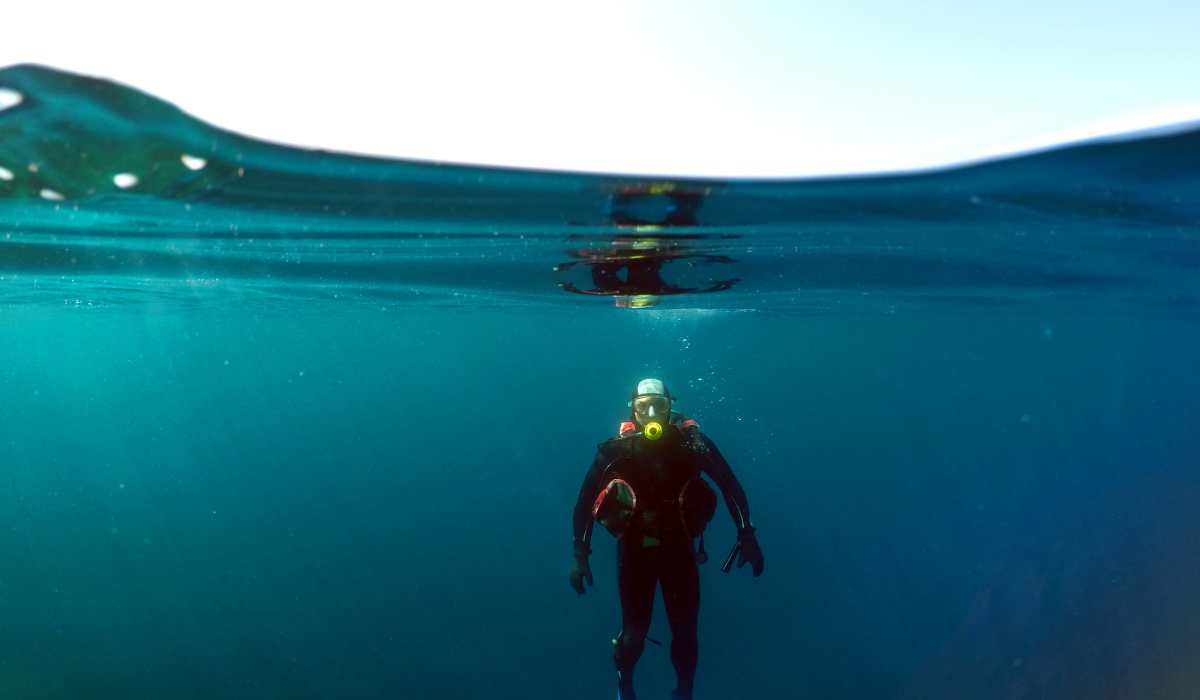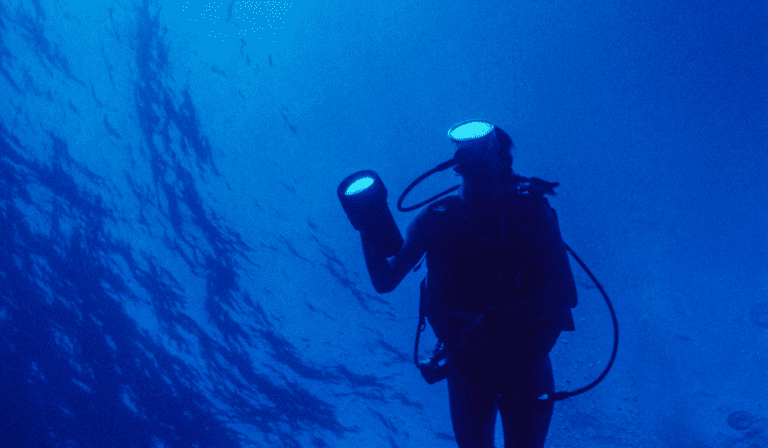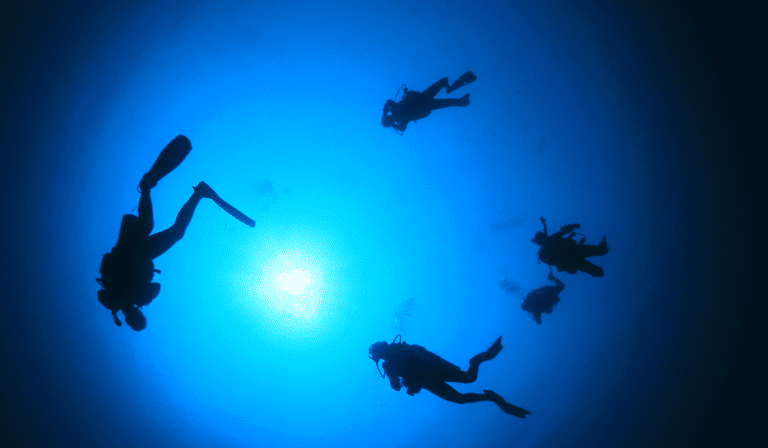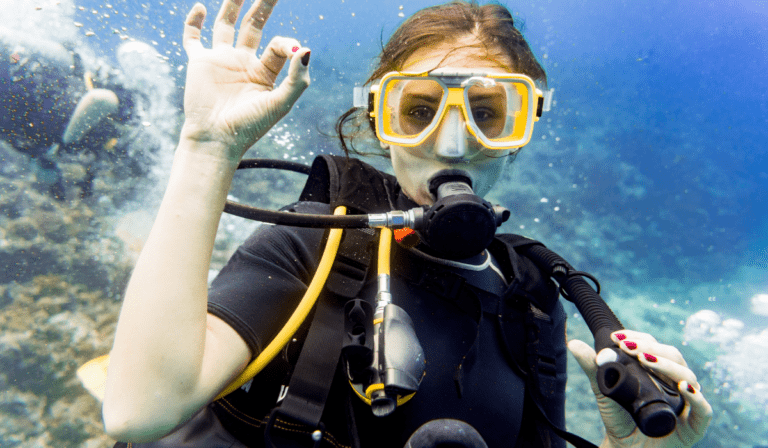Best Spots for Scuba Diving in the Caribbean
Venturing into the Caribbean for a scuba diving excursion can provide an unparalleled experience, with vivid aquatic life and immaculate reefs to explore. In this guide, we will explore the best Caribbean dive destinations for both novice and experienced divers, as well as provide an overview of the necessary items to pack and estimated costs associated with these thrilling excursions.
We’ll discuss essential items to pack for your trip to Scuba Diving in the Caribbean, ensuring you are well-prepared for any situation during your underwater exploration. Additionally, we will provide an overview of the estimated costs associated with these exhilarating adventures across various islands.
Furthermore, our expert tips will help you make the most of your dives in these tropical paradises by sharing insider knowledge on navigating diverse marine environments. Lastly, we will highlight the unique benefits of scuba diving in the Caribbean Sea – from unforgettable encounters with reef sharks to unparalleled opportunities for underwater photography at sites such as Salt Pier and Turneffe Atoll.
Table of Contents
1. Discover the Best Islands for Scuba Diving in the Caribbean

The Caribbean is a dream for scuba divers, with its limpid waters, vibrant coral reefs, and a profusion of aquatic life. Deciding where to explore the Caribbean’s underwater beauty can be daunting, so let us help you find the perfect destination. In this section, we’ll explore some of the top islands for scuba diving in the Caribbean.
Bonaire
Bonaire is known as one of the best scuba diving destinations globally due to its pristine coral reefs and diverse marine life. The island offers over 80 dive sites accessible by shore or boat dives – perfect for scuba divers of all skill levels.
Cozumel, Mexico
Cozumel, located off Mexico’s Yucatan Peninsula coast, boasts vibrant coral gardens teeming with sea creatures like turtles and nurse sharks. The world-famous Palancar Reef system offers incredible wall dives that will leave you speechless.
Grand Cayman Island
The largest of the Cayman Islands, Grand Cayman has something for every scuba diver – from shallow reef dives perfect for newer divers to deep walls suitable only for experienced divers. Don’t miss out on Stingray City – a unique site where you can interact with friendly stingrays up close.
Roatan Island, Honduras
Roatan Island, located off the coast of Honduras, is home to the Mesoamerican Barrier Reef – one of the largest coral reef systems on Earth – and boasts over 100 dive sites for a truly memorable diving experience. With over 100 dive sites and an array of marine life, Roatan offers a fantastic scuba diving experience for everyone.
Saba Island
Saba Island, known as “The Unspoiled Queen” of the Caribbean, offers dramatic underwater landscapes like volcanic pinnacles that rise from deep ocean floors. This tiny island is perfect for scuba divers looking for a more remote and unique scuba diving experience.
These are just a few examples of incredible scuba diving sites in the Caribbean – there are many more waiting to be explored. So grab your gear and get ready to discover some unforgettable underwater worlds.
From the pristine Bahamian seas to the vibrant coral reefs of Barbados, there are many amazing places for scuba diving in the Caribbean. Once you have decided on your destination, it is time to get ready for the journey.
Key Takeaway:
Discover the best islands for scuba diving in the Caribbean, including Bonaire with its pristine coral reefs and diverse marine life, Cozumel’s vibrant coral gardens teeming with sea creatures like turtles and nurse sharks, Grand Cayman Island’s shallow reef dives perfect for newer divers to deep walls suitable only for experienced divers. Roatan Island is home to the Mesoamerican Barrier Reef – the second-largest coral reef system globally – while Saba Island offers a more remote and unique scuba diving experience.
Click here to read about Scuba diving in Australia: Top Spots, Tips & Marine Life
2. What to Pack for Your Caribbean Scuba Diving Trip
Preparing for a scuba diving trip in the Caribbean requires careful planning and packing. A checklist of must-haves for your Caribbean scuba diving excursion has been created to make sure you have a pleasurable and stress-free experience.
Gear Essentials
- Dive Mask: A high-quality dive mask is crucial for clear vision underwater. Make sure it fits comfortably and provides an excellent seal around your face. Check out some top-rated dive masks here.
- Snorkel: Although not required for scuba diving, having a snorkel can be useful during surface intervals or when exploring shallow waters. Find one with a comfortable mouthpiece and easy clearing mechanism.
- Fins: Good fins are vital for efficient propulsion underwater. Choose between open-heel or full-foot fins depending on your preference, but make sure they fit well and don’t cause blisters or discomfort.
- Buoyancy Control Device (BCD): Renting BCDs at your destination is always an option; however, bringing your own ensures proper fit and familiarity with its features. Learn more about selecting the right BCD from this helpful guide by Leisure Pro.
- Regulator: A reliable regulator is essential for delivering air from your tank while diving. Consider investing in one with user-friendly features like adjustable airflow settings and easy-to-use purge buttons.
- Wetsuit: Depending on the water temperature, you may need a wetsuit or dive skin for thermal protection. Make sure it fits snugly but allows freedom of movement for comfortable diving.
- Accessories: Don’t forget other essentials like a dive computer, underwater flashlight, surface marker buoy (SMB), and mesh gear bag. These items will enhance your safety and convenience during dives.
Personal Items & Snacks
In addition to your scuba gear, pack some personal items that will make your trip more enjoyable:
- Sunscreen with high SPF to protect against sunburns while spending time at the beach or on boats.
- A reusable water bottle to stay hydrated throughout the day.
- Towels and swimwear for lounging by the pool or beach after diving sessions.
- A hat and sunglasses for added sun protection when not in the water.
- Snacks such as granola bars, fruit, nuts, or trail mix can help keep energy levels up between dives. Be mindful of local customs regarding food consumption near dive sites; always dispose of waste properly.
Important Documents & Extras
Lastly, don’t forget these essential documents and extras before embarking on your Caribbean scuba diving adventure:
- A valid passport and any necessary visas or travel documents.
- Certification card and logbook to prove your scuba diving experience and qualifications.
- Cash or credit card for any additional expenses like equipment rentals, boat dives, or souvenirs.
- Emergency contact information and travel insurance documents.
Ensure you have all the necessary supplies for your Caribbean scuba diving escapade, like a wetsuit, flippers, and goggles. Before taking the plunge into planning your Caribbean scuba diving trip, ensure that you have budgeted for all associated costs.
Key Takeaway:
To ensure a hassle-free Caribbean scuba diving adventure, it’s important to pack the right gear essentials such as a high-quality dive mask, fins, and buoyancy control device. Personal items like sunscreen and snacks are also necessary while valid travel documents and emergency contact information should not be forgotten.
Click here to read about 5 Best Places for Scuba Diving in Europe
3. Estimated Costs of Scuba Diving in the Caribbean

Planning a scuba diving trip to the Caribbean can be an exciting adventure, but it’s essential to have a clear understanding of the costs involved. This section will break down some common expenses you may encounter while planning your dive vacation.
Dive Packages and Fees
The cost of scuba diving courses and certifications varies depending on your experience level and location. In general, expect to pay between $300-$500 for entry-level certification courses such as Open Water Diver or Advanced Open Water Diver.
- Dive packages: Many dive centers offer package deals that include multiple dives, equipment rental, and sometimes even accommodations. These packages typically range from $150-$400 per person for three to five dives.
- National park fees: Some popular dive sites are located within national parks or marine reserves which require an entrance fee ranging from $10-$30 per day.
Accommodations
Your choice of accommodation will significantly impact your overall budget for a scuba diving trip in the Caribbean. Accommodation options vary from economical hostels at $20 a night to extravagant resorts with nightly rates in the thousands.
Transportation
Flying into major hubs like San Juan (Puerto Rico), Montego Bay (Jamaica), or Nassau (Bahamas) is usually more affordable than flying directly into smaller islands with limited flight options. Once you’ve arrived, consider utilizing public transit or hiring a taxi to save on costs rather than renting a car.
Food and Drinks
Food costs can vary greatly depending on your destination, but it’s safe to budget around $30-$50 per day for meals if you plan to eat at local restaurants or food stands. Keep in mind that some islands are more expensive than others – for example, dining out in the Bahamas or Barbados will generally be pricier than eating in Dominica or Honduras.
Travel Insurance
Don’t forget to factor travel insurance into your budget as well. Comprehensive policies that cover scuba diving activities typically cost between $50-$100 per week, depending on factors such as age and coverage limits.
In summary, scuba diving trips in the Caribbean can range from affordable to luxurious experiences. Having a clear understanding of potential expenses is essential when planning your adventure. Be sure to research dive centers and accommodations thoroughly before booking any packages so you can find the best deals possible.
Exploring the Caribbean via scuba diving can be a thrilling experience, yet it is wise to factor in associated expenses beforehand. Having considered the cost, let us now look into ways to ensure optimum scuba diving in the Caribbean.
Key Takeaway:
Organizing a Caribbean scuba vacation can be thrilling, yet it is essential to comprehend the associated costs. Expenses include dive packages and fees, accommodations, transportation, food and drinks, and travel insurance. Budgeting for these expenses is crucial in order to find the best deals possible.
4. Tips for Having the Best Scuba Dives in the Caribbean
Gaining insight into how to make your scuba dives in the Caribbean as safe and enjoyable as possible is crucial for an unforgettable underwater adventure. Here are some expert tips to help you get the most out of your diving experience:
Choose a Reputable Dive Operator
Your safety should be your top priority when selecting a dive operator. Research online reviews, ask for recommendations from fellow divers, and ensure that they follow PADI or SSI standards.
Select Dive Sites Based on Your Experience Level
The Caribbean offers dive sites suitable for all levels of experience – from beginners to advanced divers. Make sure you choose sites that match your skill level so you can enjoy the dive without feeling overwhelmed or unsafe.
Familiarize Yourself with Local Marine Life and Hazards
Familiarize yourself with the underwater creatures and risks in your area before taking a dive to ensure you are adequately prepared. Learn about potentially dangerous species like lionfish, barracudas, and moray eels before getting in the water. Additionally, research any potential hazards such as strong currents or low visibility at specific locations.
- Dive Buddy System: Always use a buddy system while diving; it’s not only safer but also makes sharing experiences more enjoyable.
- Maintain Proper Buoyancy Control: Good buoyancy control helps protect coral reefs by preventing accidental contact with fragile organisms.
- Pace Yourself: Don’t try to cram too many dives into a short period. Give your body time to rest and recover between dives.
- Stay Hydrated: Dehydration can increase the risk of decompression sickness, so drink plenty of water before and after each dive.
Click here to read about Best Rated Dive Lights for Scuba Diving
Invest in Quality Gear or Rent from a Reputable Source
If you’re an avid diver, investing in quality gear is essential for comfort and safety. However, if you prefer renting equipment while traveling, make sure it’s from a reputable source that maintains their gear properly. Don’t hesitate to ask questions about the maintenance schedule and last service date for rental equipment.
Get Insured
Diving accidents are rare but can be costly when they do occur. It’s wise to have dive insurance, which covers medical expenses related to diving injuries as well as potential costs associated with trip cancellations or lost gear.
Ensure you have a safe and enjoyable experience on your Caribbean scuba diving trip by following these helpful tips. Remember always to prioritize safety above all else – happy diving.
To ensure a secure and pleasurable scuba diving outing in the Caribbean, adhere to these tips. Having outlined the necessary safety measures, it is worth considering why scuba diving in the Caribbean can be such a rewarding experience.
Key Takeaway:
Selecting a reliable dive provider and sites suitable for your ability are essential for an ideal scuba diving adventure in the Caribbean. Familiarize yourself with local marine life and hazards, use the buddy system while diving, maintain proper buoyancy control, pace yourself, stay hydrated, invest in quality gear, or rent from a reputable source and get insured for potential accidents.
5. The Benefits of Scuba Diving in the Caribbean

Scuba diving in the Caribbean is a top choice for underwater adventurers, with its stunningly clear waters and vibrant marine life. The Caribbean boasts remarkable aquatic clarity, an abundance of colorful coral reefs, and a wealth of marine life, making it an ideal destination for scuba divers. Here are some of the key benefits that make scuba diving in the Caribbean so special:
stunning Coral Reefs
The Caribbean coral reefs are among the most beautiful and diverse in the world. Home to more than 65 species of stony corals and thousands of fish species, these colorful underwater ecosystems provide a breathtaking backdrop for your dives.
Abundant Marine Life
In addition to its stunning coral formations, the Caribbean boasts an incredible variety of marine life – from tiny seahorses to massive whale sharks. Some popular creatures you might encounter during your dives include sea turtles, rays (like stingrays or manta rays), dolphins, nurse sharks, and various types of tropical fish such as angelfish or parrotfish.
Excellent Visibility & Water Conditions
- Visibility: Thanks to its clear turquoise waters with visibility often exceeding 100 feet (30 meters), divers can enjoy excellent views while exploring beneath the surface.
- Water Temperature: The warm water temperatures in this region range between 75°F – 85°F (24°C – 29°C) year-round, making it comfortable for divers without needing thick wetsuits.
- Mild Currents: Generally speaking, currents in the Caribbean are mild, making it a great destination for beginner divers or those who prefer a more relaxed diving experience.
Wide Range of Dive Sites & Experiences
From shallow reefs to deep walls and shipwrecks, the Caribbean offers an array of dive sites suitable for all skill levels. This means that whether you’re a novice diver looking to gain experience or an expert seeking new challenges, there’s something here for everyone.
Easy Access & Availability of Dive Operators
With its popularity as a dive, destination comes easy access to numerous professional dive operators throughout the region. These businesses offer guided dives, equipment rentals, and certification courses – ensuring that you have everything you need for your underwater adventure in the Caribbean.
In summary, scuba diving in the Caribbean provides not only stunning visuals but also unforgettable experiences with diverse marine life and varied dive sites catering to all skill levels. Add in excellent visibility and water conditions plus easy access to professional services; it’s no wonder why so many people choose this region as their go-to spot for underwater exploration.
Key Takeaway:
Exploring the Caribbean’s remarkable coral reefs, varied marine life, great visibility, and water conditions, diverse dive spots and activities, plus easy access to pro facilities makes scuba diving in this area a favorite pastime. With warm water temperatures year-round and mild currents suitable for all skill levels, it’s no wonder why so many people choose this region as their go-to spot for underwater exploration.
Click here to read about 5 Best Places for Scuba Diving in Hawaii
6. Top Caribbean Dive Destinations
- Bonaire
- Grand Cayman
- Cozumel
- Saba Island
- Bay Islands
- Cayman Brac
- Dominican Republic
- British Virgin Islands
- Turneffe Atoll
7. Scuba Diving Destinations in the Caribbean
The Caribbean Sea is home to some of the world’s most spectacular scuba diving sites. Here are some of the top destinations:
- Bonaire
- Grand Cayman
- Cozumel
- Saba Island
- Bay Islands
- Cayman Brac
- Dominican Republic
- British Virgin Islands
- Turneffe Atoll
8. Saba Island: A Unique Dive Destination
Saba Island is a unique dive destination that offers a range of diving experiences for both newer and experienced divers. Here are some of the highlights:
- Untouched volcanic formations
- Colorful corals and sponges
- Diverse marine life
- Protected marine park
- Shore diving capital of the Caribbean
- Chance to see Caribbean reef sharks and nurse sharks
- Opportunities for night diving and underwater photography
Whether you’re interested in exploring pristine reefs, shark diving, wreck diving, or cavern diving, the Caribbean has something for every scuba diver. Book your next tropical island adventure today.
FAQs about Best Spots for Scuba Diving in the Caribbean
WHERE IS THE BEST PLACE TO DIVE IN THE CARIBBEAN?
The best place to dive in the Caribbean depends on your preferences, but some top spots include Bonaire, known for its pristine coral reefs and diverse marine life; Grand Cayman, famous for its crystal-clear waters and Stingray City; and Cozumel, Mexico’s largest island with stunning underwater landscapes. Explore more top Caribbean diving destinations here.
IS THE CARIBBEAN GOOD FOR SCUBA DIVING?
Yes, the Caribbean is an excellent destination for scuba diving due to its warm tropical climate, clear turquoise waters, abundant marine life, vibrant coral reefs, and numerous shipwrecks. The region offers a wide variety of dive sites suitable for divers of all experience levels. Learn more about scuba diving in the Caribbean here.
What is One of the Caribbean’s Greatest Dive Destinations?
Saba Island stands out as one of the greatest dive destinations in the Caribbean. Known as “The Unspoiled Queen,” Saba boasts untouched volcanic formations covered with colorful corals and sponges that attract a rich diversity of marine species. Its protected marine park ensures healthy ecosystems ideal for unforgettable dives. Discover more about Saba Island’s exceptional diving opportunities here.
What Island Has the Best Scuba Diving?
Bonaire consistently ranks among islands with outstanding scuba diving experiences due to its well-preserved coral reefs teeming with diverse aquatic creatures like turtles and seahorses. This Dutch-Caribbean island also features shore-based dives, making it easily accessible for divers. Find out more about scuba diving in Bonaire.
Conclusion
From vibrant reefs to diverse marine life and even shark diving, there is something for every level of diving. Remember to pack appropriately, budget accordingly, and follow our tips for having an unforgettable experience.







